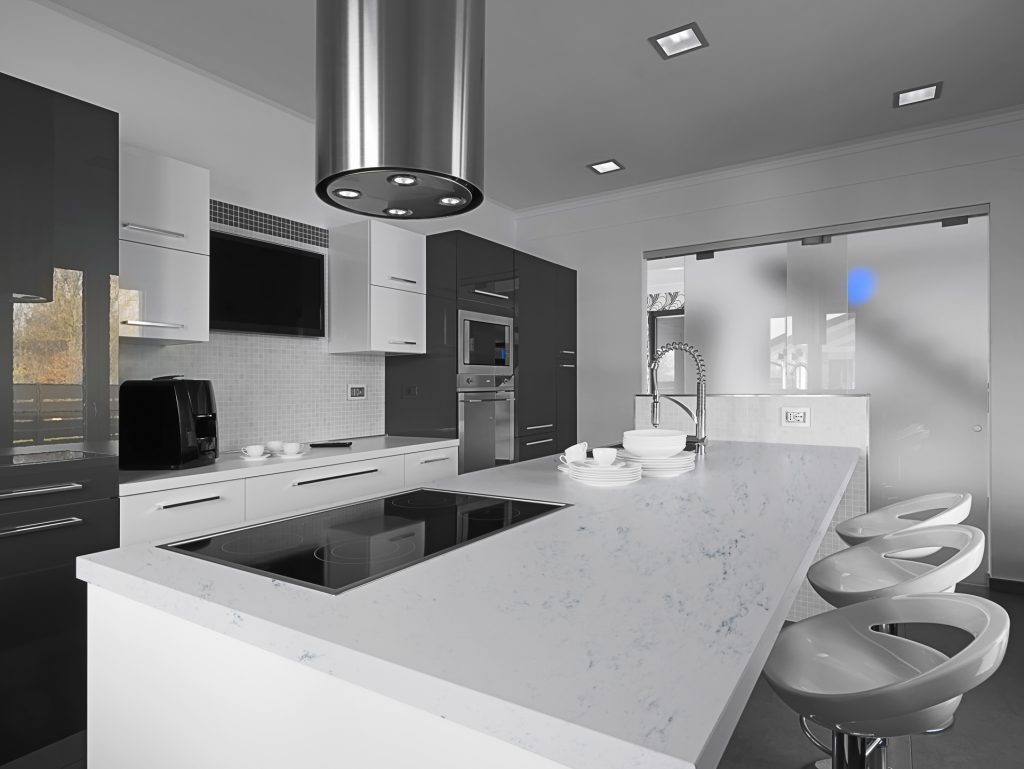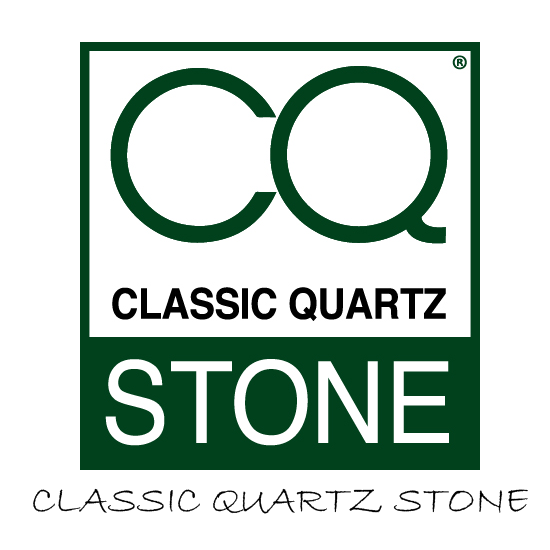
Searching for the right material for your new worktops, countertops or any other work surface can be a very time-consuming task. Nowadays, there are so many options available, from natural stone like granite and marble to engineered stone like quartz, porcelain and more. Certainly, stones have proven to be the most durable materials out there, but there are also differences between them.
Here we will help you out decide whether a natural or engineered stone is the best choice for your new kitchen or bathroom.
1. Quartz is engineered stone, while marble and granite are natural
Quartz slabs are made of 93% natural quartz and 7% resins and pigments. The natural quartz gives the slabs sturdiness and durability, while resins are giving it waterproof quality. On the other hand, marble and granite are natural stones that are preserving the characteristics of the rock it have been quarried from. This means that they will be more prone to staining, for example.
2. Quartz is stain-proof
Resins act as a sealant and form a sleek, non-porous surface on the slabs that no water or liquids can stain. Natural stones, on the other hand, have a porous surface that will get stained easier.
3. Engineered quartz is highly resistant to scratching
Quartz and granite are both highly resistant to scratching; they are both very dense materials that will not get scratched even if you cut directly on them. Marble is softer than both and will get scratched quite easily if you don’t pay attention.
4. Easy to maintain and clean
All three will be very easy to clean; just use soap and water for a day to day cleaning and you will be good. But the biggest difference lies in the fact that you will have no hard times removing spills from quartz slabs. It also doesn’t require sealing at all, unlike natural stones.
5. Engineered quartz is more affordable
Generally speaking, quartz is more affordable than natural stones. Prices for all materials are varying from colour to colour. Because of that, it can happen that you will find a natural stone colour that is less expensive than quartz, but it is generally not the case.
6. Variety of colours and patterns
During the manufacturing process, the pigments are added to quartz to change its colour, add patterns and veins. Because of that, quartz has a very wide colour and pattern selection, which is unmatched.
7. Conducting heat
All three materials have good characteristics when it comes to resistance to high temperatures. They will not melt or break when they are exposed to temperatures produced in the kitchen.
8. Quartz has a more uniformed look
Because quartz is a manufactured stone, it has more uniformed patterns compared to natural stones. This can be both a disadvantage and advantage, depending on your taste.
Choosing engineered quartz slabs for your kitchen or bathroom will be a very smart investment; they will last you for decades to come, but you will pay less than for natural stones. You will have no problems finding the perfect colour because it has a very wide colour palette.
Looking for more information about quartz and natural stone slabs? Please, contact us, and we will be happy to help you.
